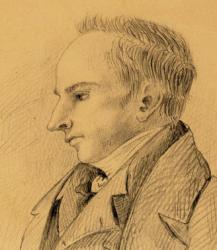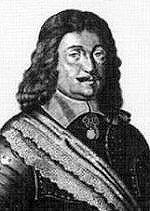1833 - 1890 Person Name: Richard E. Littledale Hymnal Number: 479 Author of "Lord Jesus, by Thy passion" in The Lutheran Hymnary Richard Frederick Littledale (b. Dublin, 1833; d. London, 1890) entered Trinity College, Dublin, as a foundation scholar, graduated with a bachelors degree in classics, a Masters of Divinity in 1858, then a Bachelors and Doctorate in Civil Law at Oxford in 1862. From 1856 to 1857 he was the curate of St. Matthew in Thorpe Hamlet, Norfolk, and from 1857 to 1861 was the curate of St. Mary the Virgin, in Soho, London. For the remainder of his life he suffered from chronic illness and spent most of his time writing. He authored many books and pamphlets on Anglican liturgy, theology, and the church’s engagement with society, and completed his good friend John Mason Neale’s work on the psalms after Neale died in 1866.
Laura de Jong
================
Littledale, Richard Frederick, LL.D., D.C.L., son of John Richard Littledale, merchant, was born at Dublin on the 14th of Sept, 1833, and was educated at Bective House Seminary, and Trinity College, Dublin. His University course was distinguished. In 1852 he became a University Scholar; in 1854 he was first class in Classics and gold medallist; in 1856 he won the Berkeley gold medal (for Greek), and other honours. He graduated B.A., 1855, M.A., 1858, LL.D., 1862, and D.C.L. at Oxford, 1862. Taking Holy Orders in 1856, he was Curate of St. Matthew's, in Thorpe Hamlet, Norwich, from 1856 to 1857, and of St. Mary the Virgin, Soho, London, from 1857 to 1861. Through ill-health he retired from parochial work in 1861, and devoted himself to literature. Dr. Littledale's publications amount to about fifty in all, and embrace Theological, Historical, Liturgical, and Hymnological subjects chiefly. His prose works include:—
(1) Application of Colour to the Decoration of Churches, 1857; (2) Religious Communities of Women in the Early Church, 1862; (3) Catholic Ritual in the Church of England, 1861; (4) Continuation of Dr. Neale's Commentary on the Psalms, vols. ii., iii., iv., 1868-74; (5) Commentary on the Song of Songs, 1869; (6) The Petrine Claims, 1878-84; (7) Plain Reasons against joining the Church of Rome, 1880, &c.; (8) Short History of the Council of Trent; and several articles in the Encyclopaedia Britannica, 1882-88. His contributions to periodical literature have been also extensive and valuable.
Dr. Littledale's Liturgical, Devotional, and Hymnological works include:—
(1) Offices of the Holy Eastern Church, in the Original Greek, with translation into English, Notes, &c, 1863; (2) Carols for Christmas and Other Seasons, 1863; (3)The Priest's Prayer Book, with hymns, 1864, and with Brief Pontifical in 1870 and later editions; (4)The People's Hymnal, 1867 ; (5) The Children's Bread. A Communion Office for the Young, with hymns, 1868; (6) Primitive Liturgies and Translations, 1868-69; (7) Children at Calvary: being The Stations of the Cross in Metre for Singing, 1872; (8) the Christian Passover, 1873; (9) The Altar Manual, 1863-77. He was joint Editor of Nos. 3, 4, 8 and 9 with the Rev. J. E. Vaux; and of No. 6 with Dr. Neale.
In addition to a large number of hymns, original and translated, in the above works, Dr. Littledale has also directly contributed original and translated hymns to:—
(1) Lyra Eucharistica, 1863; (2) Lyra Messianica, 1864; (3) Lyra Mystica, 1865; (4) The Eucharistic Hymnal, 1877; (5) The Roman Breviary in English, by the Marquess of Bute, 1879; (6) The Altar Hymnal, 1884; (7) Supplement to Hymns Ancient & Modern, 1889; (8) to the Night Hours of the Church; (9) to the St. Margaret's Hymnal [East Grinstead], 1875; and (10) to the Church Times, The Guardian, &c, &c.
Dr. Littledale's Hymnological works in verse consist of translations of Danish, Swedish, Greek, Latin, Syriac, German, and Italian hymns, together with original Carols, Hymns, and Metrical Litanies. His original hymns remain to be noted. These include the following:—
i. In the Priest's Prayer Book, 1864 :—
1. Captain of Salvation. Christian Warfare.
2. Christ, on Whose Face the soldiers. Passiontide.
3. Christ, Who hast for sinners suffered. Passiontide.
4. God the Father, from on high. For the Sick.
5. Lord Jesu, by Thy passion. Passiontide.
6. Lord, Who in pain and weariness. Passiontide.
7. 0 Jesu, in Thy torture. Passiontide. In Meditations and Prayers on the Passion of Our Lord Jesus Christ, 1863.
8. 0 Lord, to Whom the spirits live. All Souls.
9. The clouds of sorrow rest upon mine eyes. For the Sorrowing.
ii. In the People's Hymnal, 1867:—
10. Christ, our song we lift to Thee. Blessed Virgin Mary.
11. Christ, our Sun, on us arose. Whitsuntide. In Carols for Christmas, &c, 3rd series, 1864.
12. Christ, the Lord, Whose mighty hand. Prayer for Peace.
13. Day is past and gone. Evening. In the Church Times, Feb. 17, 1866.
14. Eternal Shepherd, God most high. Vacancy of a See or Parish.
15. Eternal Wisdom, God most high. Common of Doctors.
16. God eternal, infinite. Septuagesima.
17. Hidden Saviour, great High Priest. Holy Communion.
18. I believe in God the Father. The Creed.
19. I worship Thee, Lord Jesu. Holy Communion. In the Church Times, May 10, 1865.
20. In Paradise reposing. Burial of a Child.
21. In songs of glad thanksgiving. General Thanksgiving.
22. Lord, Whose goodwill is ever sure. In time of Famine.
23. Now the sun is in the skies. Morning. In the Church Times, Jan. 27, 1866.
24. 0 God of mercy, God of love. For Rain.
25. 0 God, Who metest in Thine hand. For those at Sea.
26. 0 God, Whose Sole-Begotten left. Almsgiving.
27. 0 sing to the Lord, Whose bountiful hand. Thanksgiving for Rain.
28. Set upon Sion's wall. Ember Days.
29. The Cedar of Lebanon, Plant of renown. Christmas. First published in Sedding's Christmas Carols, 1863.
30. The fight is o'er, the crown is won. Burial of a Sister of Mercy.
31. The wintry time hath ended. Thanksgiving for Fair Weather.
32. We are marching through the desert. Processional.
33. When the day hath come at last. The Judgment.
In addition to these, a few of the more widely used of Dr. Littledale's original hymns, as "From hidden source arising," and others, are annotated under their respective first lines. In the People's Hymnal, 1867, Dr. Littledale adopted the following signatures:—
A. L. P., i.e., A London Priest.
B., i.e., An initial of a former address.
B. T., i.e., The initials of a former address.
D. L., i.e. Dr. Littledale.
F., i.e., Frederick.
F. R., i.e., Frederick Richard.
L., i.e., Littledale.
P. C. E., i.e., Priest of the Church of England.
P. P. Bk., i.e., Priest's Prayer Book.
Taken as a whole, Dr. Littledale's translations from the seven languages named above are characterised by general faithfulness to the originals, great simplicity of diction, good metre, smooth rhythm, and deep earnestness. His original compositions are usually on special subjects, for which, at th$ time they were written, there were few hymns, and are marked by the same excellent features of a good hymn as his translations. His main object throughout is to teach through Praise and Prayer.
--John Julian, Dictionary of Hymnology (1907)
======================
Littledale, Richard F., p. 679, ii. He died at Red Lion Square, London, Jan. 11, 1890.
--John Julian, Dictionary of Hymnology, Appendix, Part II (1907)
Richard Frederick Littledale


 My Starred Hymns
My Starred Hymns





